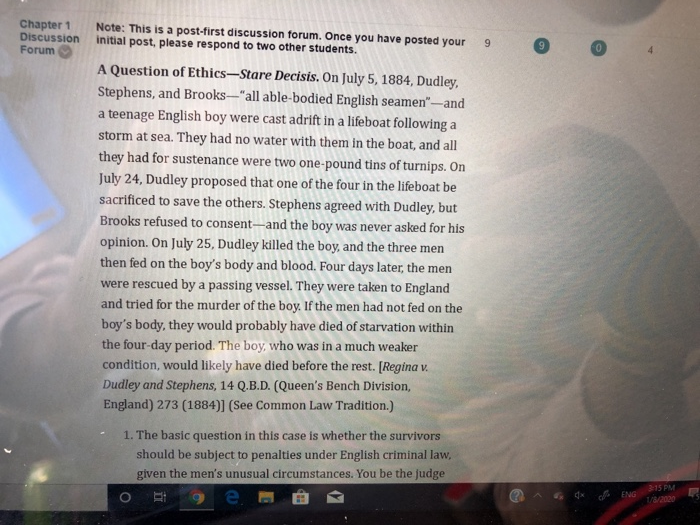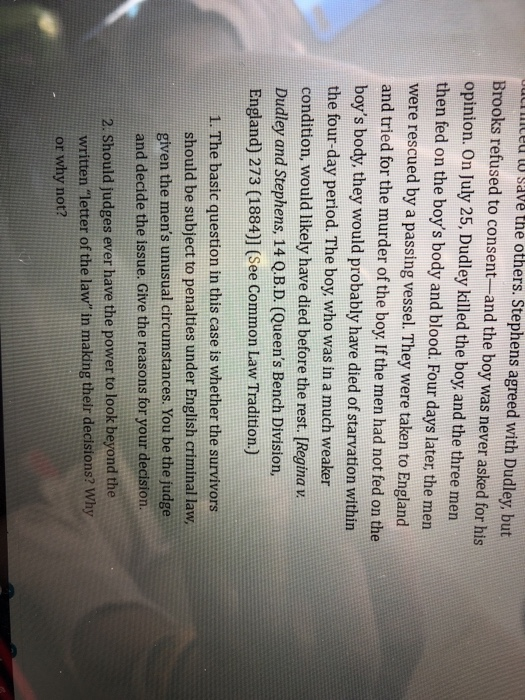Chapter 1 Discussion Forum Note: This is a post-first discussion forum. Once you have posted your initial post, please respond to two other students. 9 A Question of Ethics-Stare Decisis. On July 5, 1884, Dudley, Stephens, and Brooks--"all able-bodied English seamen"-and a teenage English boy were cast adrift in a lifeboat following a storm at sea. They had no water with them in the boat, and all they had for sustenance were two one-pound tins of turnips. On July 24, Dudley proposed that one of the four in the lifeboat be sacrificed to save the others. Stephens agreed with Dudley, but Brooks refused to consent-and the boy was never asked for his opinion. On July 25, Dudley killed the boy, and the three men then fed on the boy's body and blood. Four days later, the men were rescued by a passing vessel. They were taken to England and tried for the murder of the boy. If the men had not fed on the boy's body, they would probably have died of starvation within the four-day period. The boy, who was in a much weaker condition, would likely have died before the rest. [Regina v. Dudley and Stephens, 14 Q.B.D. (Queen's Bench Division, England) 273(1884)] (See Common Law Tradition) 1. The basic question in this case is whether the survivors should be subject to penalties under English criminal law, given the men's unusual circumstances. You be the judge og e. 3:15 PM ? ^ x ENG 18/2020 lieu w save the others. Stephens agreed with Dudley, but Brooks refused to consentand the boy was never asked for his opinion. On July 25, Dudley killed the boy, and the three men then fed on the boy's body and blood. Four days later, the men were rescued by a passing vessel. They were taken to England and tried for the murder of the boy. If the men had not fed on the boy's body, they would probably have died of starvation within the four-day period. The boy, who was in a much weaker condition, would likely have died before the rest. [Regina v. Dudley and Stephens, 14 Q.B.D. (Queen's Bench Division, England) 273 (1884)] (See Common Law Tradition.) 1. The basic question in this case is whether the survivors should be subject to penalties under English criminal law, given the men's unusual circumstances. You be the judge and decide the issue. Give the reasons for your decision. 2. Should judges ever have the power to look beyond the written "letter of the law" in making their decisions? Why or why not








